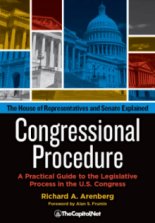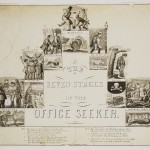Yield / Yielding / Yield for a Question? (CongressionalGlossary.com)
From the Congressional Glossary – Including Legislative and Budget Terms Yield / Yielding / Yield for a Question? photo credit: OnTask When a member has been recognized to speak by the presiding officer, no other member may speak unless he obtains permission from the member recognized. This permission is called yielding and is requested in … Read more





